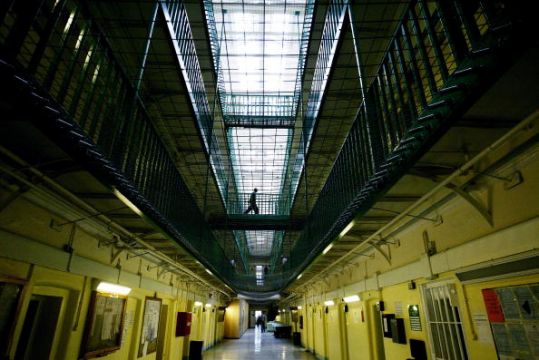The Irish Prison Service (IPS) has withdrawn its appeal over a High Court finding with significant implications for the rights of disabled prison officers.
In June last year Mr Justice Anthony Barr ruled the IPS is obliged under the Employment Equality Act to try and make “reasonable accommodation” for a disabled officer, Robert Cunningham, if that can reasonably be done while preserving operational capacity.
He overturned a Labour Court preliminary finding that the IPS has a blanket exemption, under section 37.3 of the 1998 Act, from a complaint of discrimination on grounds of disability made by Mr Cunningham.
Section 37.3 provides it is an “occupational requirement” for employment in the Garda, Defence Forces, IPS and emergency services that persons are capable of carrying out the full range of functions they may be called on to perform.
Reasonable accommodation
Mr Justice Barr held section 37.3 does not exempt emergency services from providing reasonable accommodation for a disabled employee, but merely enables them to show that capacity to carry out a particular range of functions is an occupational requirement for employment in the particular service.
Section 37.3 does not “absolve” the IPS from the duty to provide reasonable accommodation for the disabled person if that can reasonably be done while at the same time preserving the operational capacity of the service, he said.
Justice requires the person with a disability to be given the chance to make a case they could perform the function required of them if reasonable accommodation were made for them which was not “unduly burdensome” to the employer and did not impair the operational capacity of the emergency service, he held.
Because Mr Cunningham was not given that opportunity, the judge allowed his appeal over the Labour Court decision, with the effect the Labour Court must reconsider his complaint on factual evidence and in line with the judge’s findings.
Restraint and control duties
Aged in his early 40s, Mr Cunningham joined the IPS in 2005. He underwent a number of operations after suffering serious back injuries following two separate assaults by prisoners.
He complained of discrimination after the IPS told him in 2015, following a medical examination, he could not retain his job because he could not perform restraint and control duties. He was told he could resign and apply for a lower paid position or seek ill-health retirement.

The IPS had lodged an appeal over the High Court finding but has now withdrawn the appeal, with the result the finding stands.
The Irish Human Rights and Equality Commission (IRHEC), which provided legal representation to Mr Cunningham in the High Court, welcomed the withdrawal decision.
In a statement on Monday, IRHEC chief commissioner Sineád Gibeny said it will endeavour to offer every assistance to Mr Cunningham for the pending Labour Court hearing.
“This is an important case that illustrates the importance of access to work to the dignity of persons with disabilities,” she said.







